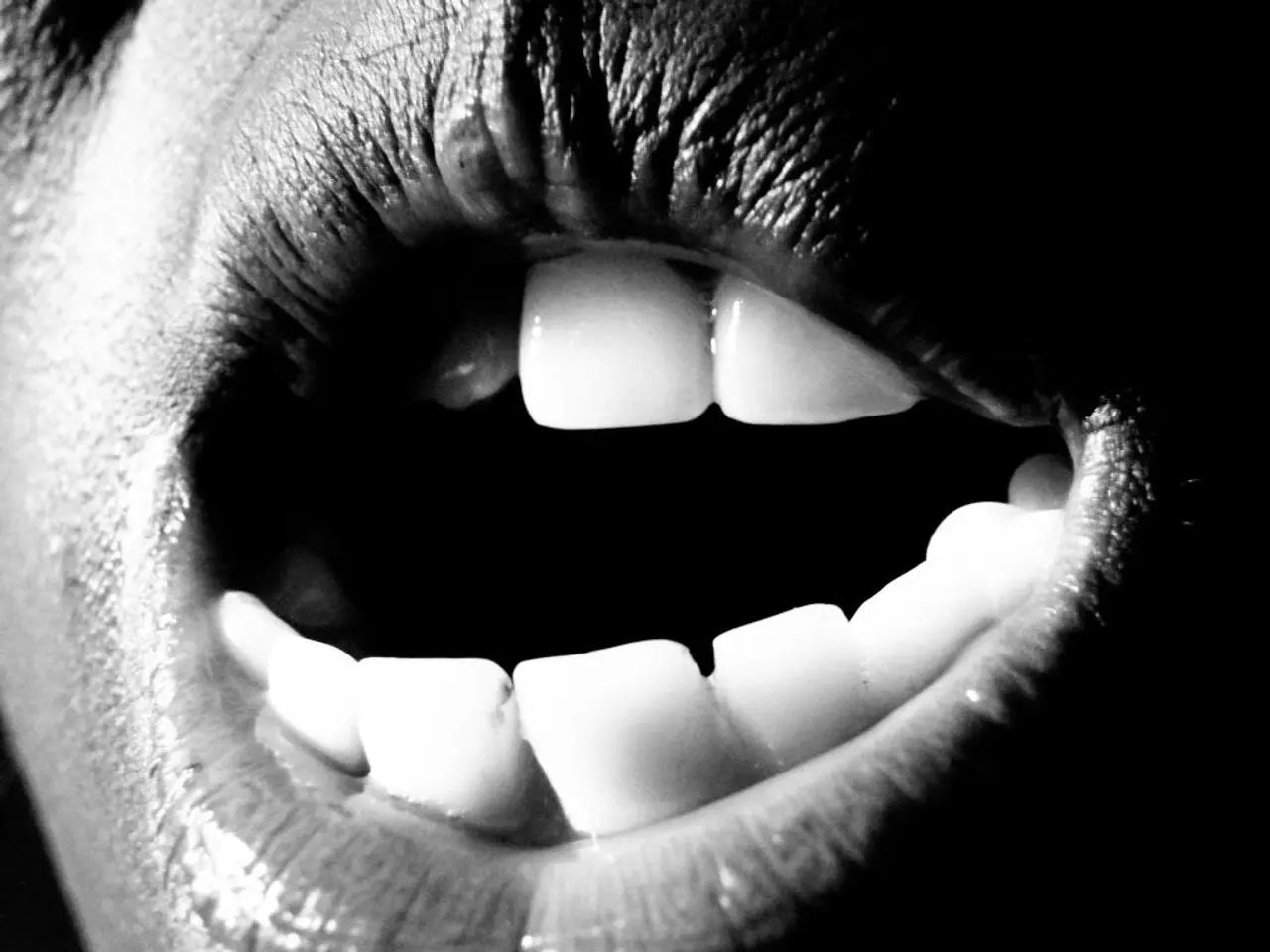Nighttime Frequent Urination and Dry Mouth: Six Possible Causes
In the realm of health concerns, two seemingly unrelated symptoms - dry mouth and frequent urination at night (nocturia) - can often coexist, signaling potential underlying health issues. This article delves into the common causes, symptoms, and potential treatments for these conditions.
One of the major medical causes linking dry mouth and frequent urination is diabetes, both type 1 and type 2. Elevated blood sugar levels due to these conditions can cause osmotic diuresis, leading to increased urine production and dehydration, which in turn results in excessive thirst and dry mouth.
Dehydration, caused by insufficient fluid intake or increased fluid loss due to diuretics like caffeine or alcohol, can also lead to dry mouth and increased thirst and urination. Lifestyle factors such as mouth breathing, particularly at night due to nasal congestion, sleep apnea, or airway obstructions, can also contribute to dry mouth. Conversely, drinking excessive fluids in the evening can lead to frequent nighttime urination, disrupting sleep.
Certain medications, including diuretics, corticosteroids, anticholinergic drugs, and some diabetes medications, can reduce saliva production, causing dry mouth and increasing urine output. Hormonal imbalances, such as those caused by thyroid disorders or changes during menopause, can also affect fluid regulation and saliva production, potentially causing both symptoms.
When dry mouth and frequent urination at night occur together, healthcare providers often evaluate these symptoms with appropriate tests, including blood glucose and thyroid function tests, to determine the exact cause.
UTIs, or urinary tract infections, are a separate category of conditions that can cause symptoms such as a sudden or more frequent urge to urinate, a burning sensation during urination, cloudy or strong-smelling urine, blood in the urine, pelvic pain, feeling generally unwell, and frequent urination. Treatment for UTIs involves antibiotics to eradicate the infection.
During pregnancy, hormonal changes can lead to increased urination, which may be worse at night, as well as urinary urgency and incontinence issues. Other potential signs of pregnancy include missed periods, fatigue, breast tenderness, food cravings or aversions, nausea or vomiting, and in some cases, dry mouth and increased urination can indicate gestational diabetes.
Prostate enlargement, or benign prostatic hyperplasia (BPH), is a condition that occurs in males over the age of 50 and involves the growth of the prostate gland, obstructing urine flow. Symptoms include frequent urge to urinate, increased urination at night, difficulty starting urination, weak urine stream, pain when urinating, incomplete emptying of the bladder, and dribbling after urination.
OAB, a group of symptoms that affect the urge to urinate, can lead to frequent urination, including during the night, which could also lead to dehydration and dry mouth. Up to 40% of the population in the United States experiences symptoms of OAB.
Diabetes insipidus, a rare form of diabetes, can cause dry mouth and frequent urination due to increased water loss in the urine, potentially leading to dehydration.
It is essential to consult a healthcare professional promptly if an individual experiences persistent dry mouth and frequent urination, especially if they also have other symptoms such as unexplained weight loss, fatigue, or fever. Treatment for these conditions may involve lifestyle changes, medications, blood sugar monitoring, Botox injections, surgery, radioactive iodine therapy, or drinking more liquids to prevent dehydration. Diagnosis for these conditions may involve a physical exam, medical history, blood tests, urinalysis, water deprivation tests, imaging, urodynamic testing, or cystoscopy.
Severe dehydration signs along with a dry mouth include extreme thirst, little or no urine, fast heart rate, fast breathing, low blood pressure, confusion, drowsiness or loss of consciousness, and require immediate medical attention. Diagnosis for UTIs involves urine tests to detect the presence of bacteria and white blood cells.
In summary, dry mouth and frequent urination at night can be symptoms of several underlying health conditions. A healthcare provider can evaluate these symptoms with appropriate tests to determine the exact cause and provide the most effective treatment.
Read also:
- Is it advisable to utilize your personal health insurance in a publicly-funded medical facility?
- Dietary strategies for IBS elimination: Aims and execution methods
- Benefits, suitable dosage, and safety considerations for utilizing pumpkin seed oil in treating an overactive bladder
- Harmful Medical Remedies: A Misguided Approach to Healing




